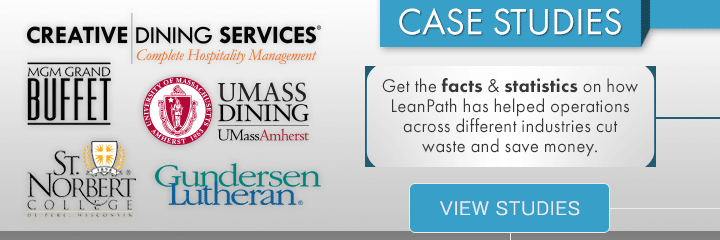Community Spotlight: University of North Dakota

Orlynn Rosaasen has been at the University of North Dakota for 19 years, working in his current position as Director of Dining Services for 12 years. He oversees all of the dining initiatives across three large residential dining halls, as well as a multi-concept retail food operation. He was the key decision-maker for the LeanPath System, which was implemented at UND in September of 2011 with four Trackers across the three dining halls and one café.
Why did you decide to implement the LeanPath System?
“I was looking for a system to help us manage our food waste. Through our manual tracking systems, we knew there was waste occurring, but because of inconsistent tracking we were unable to put a dollar or volume value to the waste. The collected data was irrelevant and not of much use. So I started looking for a system that would help us get detailed information that was more automated.”
What were your expectations for the program?
“I wanted it to pay for itself—that was my initial goal. We calculated it back in May, 9 months after implementation, and it had paid for itself—it did quite well.”
What is the best part about using the LeanPath system?
“The system is simple to use. All it takes is a few key strokes and you’ve recorded the waste. Even the initial set up is easy. There isn’t any reason that anyone working in the kitchen can’t use the program—it’s extremely easy.”
Do you have any tips for managers implementing the system?
“Implement it in a way that the staff knows it’s non-threatening. Some staff were concerned it was going to be a disciplinary tool and they would get written up for the waste. We communicated that was not in the intent; that we were using it as a tool for the operation to work better and work smarter.”
“We’ve had good results and we’re looking forward to continued good results. Dining services staff was extremely excited to use it when it was implemented and they continue to use it the way it was designed to be used.”
Over a 9-month period, UND has saved more than $115,000 in waste avoidance, reducing pre-consumer food waste by 29%.
For more about UND's success with LeanPath Food Waste Tracking Systems, read their case study by clicking below.

